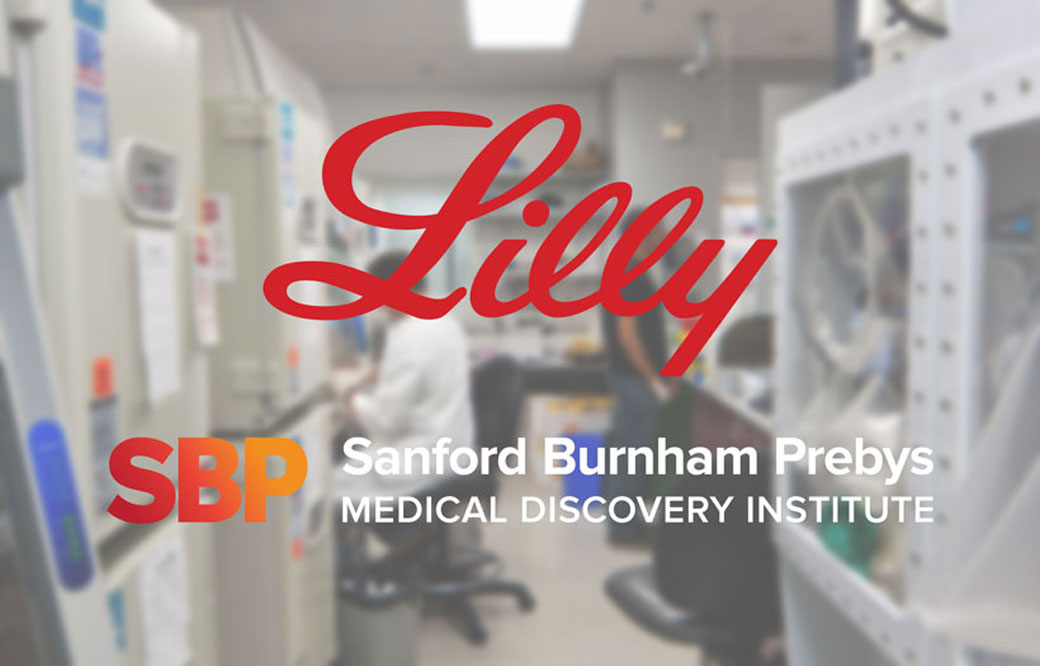Neutralizing antibodies have the potential for both prevention and treatment of COVID-19.
Sanford Burnham Prebys Medical Discovery Institute today announced a research agreement with Eli Lilly and Company (Lilly) to characterize Lilly’s next-generation anti-SARS-CoV-2 antibodies. These collaborative studies aim to build on Lilly’s current portfolio of neutralizing antibodies by exploring novel cocktails, half-life extension technologies and strategies to further enhance potency. Neutralizing antibodies have the potential for both prevention and treatment of COVID-19 and may be particularly important for groups hardest hit by the disease, such as the elderly and those with compromised immune systems.
“We are very excited to be working with Lilly on this important project to help identify additional potential ways to treat SARS-CoV-2,” says Sumit Chanda, PhD, director of the Immunity and Pathogenesis Program at Sanford Burnham Prebys. “Our scientists will be testing whether these antibodies can disrupt the interaction between SARS-CoV-2 and its human cell surface receptor, which will block the ability of the virus to attach and gain entry into our cells.”
The research team will evaluate antibody candidates, delivered from Lilly through their partnership with AbCellera, using the live virus in the Institute’s Biosafety Level 3 (BSL-3) laboratory, which is equipped with safeguards designed to protect laboratory personnel as well as the surrounding environment and community. The facility was established in 2016 to support Chanda’s research on viruses having pandemic potential such as influenza, HIV, West Nile virus, Dengue fever and coronaviruses.
“We are grateful to be working with our colleagues at Sanford Burnham Prebys,” says Ajay Nirula, MD, PhD, vice president of immunology research at Lilly. “Having access to Dr. Chanda’s expertise in virology and state-of-the-art facilities helps us advance our ability to identify potent therapeutic antibodies that have the potential to help meet the urgent need of preventing and treating COVID-19.”
